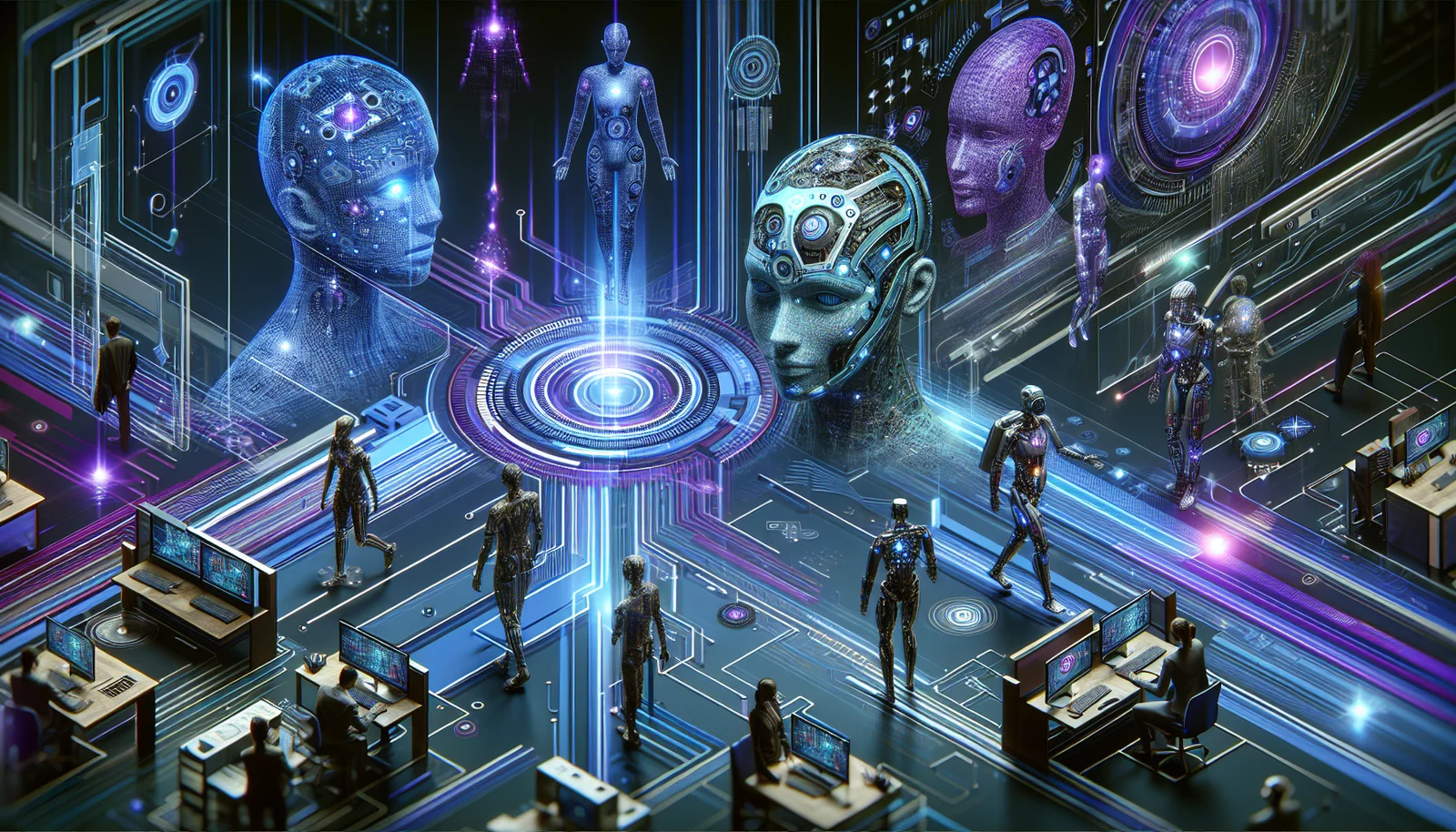The resounding announcement by Keir Starmer marks a historic turning point for the British public administration. *Artificial intelligence* is now positioned as a bold tool, capable of taking on certain functions of civil servants. The stakes associated with this transition are numerous: restructuring government processes, reducing operational costs, and optimizing services for citizens. This ambitious project also raises profound questions about the future of work within public institutions and the skills required to pace this imperative technological evolution.
Towards autonomy in public functions through AI
The British Prime Minister, Keir Starmer, recently outlined bold proposals regarding the use of artificial intelligence (AI) within public administrations. In a speech before Parliament, he stated that AI could gradually take on certain functions traditionally performed by civil servants. This change aims to make public services more efficient and responsive.
The British government’s action plan
Starmer presented a structured plan with fifty recommendations, the result of reflections by Matt Clifford, an expert in technological innovation. This program aims to catalyze the emergence of a national ecosystem around AI. Through this initiative, the government intends to position the United Kingdom as a global leader in this field, thereby stimulating economic growth.
Implications for public employment
The implementation of AI raises questions about its impact on employment. Workers in roles susceptible to automation may see their positions threatened. Nonetheless, measures for professional retraining are being considered to support this transition. Starmer emphasizes the need to maintain a balance between technological innovation and job protection, promoting a future where humans and machines collaborate effectively.
Regulations and ethics of AI
The government is also exploring the necessary regulations to frame the use of AI. Starmer stated that ethical standards should be established to ensure that AI serves the public good. Issues of transparency, respect for privacy, and data protection are priorities in the development of this framework.
Commitment to a technologically advanced future
Starmer discusses the necessity of preparing future generations to evolve in an AI-centric environment. Education and training must incorporate these new skills to foster innovation. The government encourages academic institutions to adapt their programs, ensuring that the British workforce is well-equipped to face future challenges.
Concrete applications already observable
Certain state functions may quickly experience the benefits of AI. Pilot projects are underway to test automated assistance systems in public interactions, such as the issuance of administrative certificates. Initial results indicate a significant reduction in processing times accompanied by increased user satisfaction.
Collaboration with the private sector
The British government is also considering closer collaboration with the private sector to develop AI tools tailored to the needs of administrations. This could generate beneficial synergies, allowing for an acceleration in the adoption of innovative technologies. Promoting a public-private partnership is seen as an essential growth lever for the advancement of AI in the UK.
Challenges to address
Despite the promises, the path towards integrating AI into public functions is not without challenges. The question of acceptance by employees remains paramount. Concerns related to increased surveillance and excessive standardization must be addressed to avoid negative impacts on team dynamics.
Discussions around AI as an administrative tool reveal complex issues that require particular attention. The success of this project relies on the engagement of citizens and civil servants with the proposed transformations.
The international community is closely monitoring the advancements of the United Kingdom in this field, a potential model for other nations aspiring to integrate AI into their public systems.
Frequently asked questions
What functions of civil servants could AI potentially assume according to Starmer’s announcements?
Starmer mentioned that AI could take over repetitive administrative tasks, data management, and potentially predictive analyses to inform public policies.
What are the advantages of allowing AI to take on certain functions in the public sector?
Key benefits include increased efficiency, reduced operational costs, and the possibility for human employees to focus on higher value-added tasks.
Are there any risks associated with the integration of AI into public functions?
Yes, some risks include job loss for civil servants, questions about the reliability of AI algorithms, and ethical concerns regarding automated decision-making.
How does the government plan to regulate the use of AI in the public sector?
The government plans to establish clear guidelines and regulations to ensure that the use of AI is ethical, transparent, and compliant with citizens’ rights.
What measures will be taken to train civil servants on the use of AI?
It is planned to develop training programs to help civil servants acquire the necessary skills to interact and collaborate with AI systems.
Will the implementation of AI in the public sector lead to a decrease in the quality of public services?
No, the intention is to improve the quality of services by alleviating the burden on human workers, allowing them to focus on tasks that require direct human intervention.
Did Starmer mention any concrete examples of AI use in the public sector?
Yes, he cited examples such as using AI to optimize the processing of administrative requests and to analyze public trends based on collected data.
How can citizens express their concerns regarding the use of AI in the public sector?
Citizens are encouraged to participate in public consultations and to make their voices heard through feedback platforms set up by the government.
What role will unions play in the integration of AI into the public sector?
Unions will have a crucial role in defending workers’ interests, ensuring employee rights are respected, and participating in negotiating conditions related to the use of AI.






